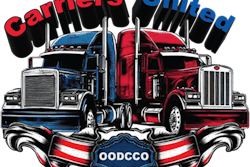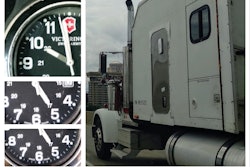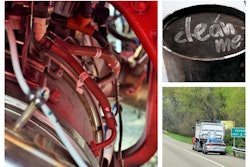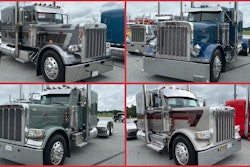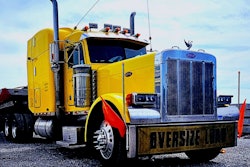Ever been through something so traumatic or stressful that you actually held your breath until it passed?
I haven’t been here on Overdrive Extra as usual these last few months, for several reasons. First, I have been deep into writing my dissertation to complete my degree. (Though I was warned of this, admittedly, it’s turned out to be some of the most time-consuming and intensive work I have ever done.) Second, I have struggled with writer's block with regard to sharing my thoughts with you. My fellow truckers can probably understand where I am coming from with my opening question.
Yet truckers are not the only ones. It feels like the entire nation can now take a deep breath now that the stress has passed -- the sigh of relief.
As the new year approaches and a new administration takes office, for many there are high hopes things will improve around trucking. Yet hope still has an air of uncertainty and a remnant of the status quo.
[Related: Post-election optimism yields opportunity: A new start for your trucking business]
After all, it still feels like we have too much capacity, which is in part responsible for freight rates remaining down so far for so long after the COVID-inspired highs. Recently, I was sitting in Kansas City awaiting the next load when I discovered mine was but one of an apparent 300 or so trucks doing just the same, and at least on the public load boards there were just 12 loads available. Many who jumped into trucking as motor carriers during the COVID rates bonanza, I suspect, are now leased owner-operators or outright lost their trucks and are working as company drivers. Either way, I think we’re going into the new year with still with a glut of capacity. Rates recovery/rebound could be a tall order.

Additionally, we finally heard from the National Academies about the compensation study they were directed to complete. While they drove another nail into the driver-shortage rhetorical coffin, they essentially failed to study whether the method of driver compensation had an impact on bedrock truck driver safety. One reason for that, as has been noted in reporting here on Overdrive, was study authors’ contention that there simply were not enough carriers offering alternative pay structures to complete such a study.
For those who do, furthermore, study authors noted carrier compensation records and methods “are often proprietary.”
I might have been able to tell them all of that, if asked.
[Related: The 'driver shortage' is dead? And: Inside the broker-carrier scrum at recent summit]
As part of my own research, I recently contacted carriers known to offer different pay structures. I could not get past the gatekeepers, and if my messages and requests for return phone calls were passed on, I have yet to receive a single call back. This did not surprise me; we work in a very competitive industry, and if compensation has enabled a carrier to retain drivers, they may not want to share that information. However, it does not change the fact that change needs to happen, and compensation is most likely one of the most significant reasons for turnover.
Excessive truckload driver turnover found by NAS researchers, nonetheless, it seems to me to be reasonable to conclude, does affect safety.
Yet safety as such doesn’t seem to be the primary concern for either big trucking's stakeholders or even the FMCSA, though they and every carrier out there tout the safety is top priority mantra. How can I justify such a statement? Large carrier interests push for speed limiters and longer trailers. They dig in on "piece rates" of pay but also push drivers to maximize hours on the road daily. At the same time, regulators sit back with their hands in their pockets, listening to trucking companies instead of drivers, doing little to push for the parking we need.
What happened to the truck driver-overtime bills that were before Congress? Maybe the powers that be have nailed that coffin shut? I don’t know. I have not heard anything in recent months about it.
[Related: Surprise, surprise: Why ATA opposes overtime pay, and why they’re wrong]
Yes, the new year is fast approaching. Out with the old and in with the new. Let’s hope what our nation voted for will trickle down into trucking.
My advice? Don’t hold your breath. The push for change will need all the oxygen we can give it.

